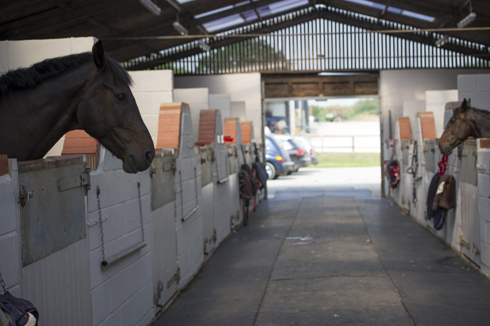“Cut costs, not care”, is the message from equine welfare charities on a joint initiative aimed at improving welfare and reducing the demand on rescue services.
The National Equine Welfare Council (NEWC), a member body that “unifies the sector” on welfare issues, has released two guides for owners. One gives advice on how to cut costs without compromising horse welfare, while the other is on making the decision to rehome an equine.
“For a long time, charities have been struggling with the message that we’re not somewhere you can dump your horse when it’s not convenient for you to keep it,” NEWC chairman Nic de Brauwere told H&H.
“We’ve been trying really hard to get people to see that’s not what charities are for.“It might sound a bit unkind, but people would be genuinely upset that they’re having to give up a horse because they’re going to university or starting a family. They’re important things, but they took on the horse [so they are responsible for it].“We hear some really sad stories of people who life has thrown a curve ball; a bereavement or someone’s in hospital, or the horse has become unaffordable and not through choice. We try our best to help but by showing how outgoings can be reduced without compromising on quality of life, we aim to help owners make the decision to keep their horses, and help prevent inadvertent neglect or abandonment. Otherwise we can help them safely navigate the rehoming route.”
Mr de Brauwere said that while charities would like to be able to help all horses, with centres at capacity and limited resources, they have to prioritise those who need it most.
The cost guide gives advice on ways to save money, such as considering types of feed and bedding — but also sets out which costs cannot be avoided without compromising welfare, such as hoof care and vaccination.
The second guide looks at different options for those who need to rehome a horse, including euthanasia if appropriate.
“I became a vet to save horses, but I’ve seen so many that would have been better put down than what happened to them,” Mr de Brauwere said.
“It’s a very personal decision but I’d never want anyone to feel guilty about putting a horse down because they’re worried about its future and don’t want to put it out in the unknown.”
Mr de Brauwere also hopes that while the guides may help people realise things they already know, they might also prompt deeper thinking about situations, with a positive outcome, before welfare issues emerge.
World Horse Welfare CEO Roly Owers said the charity takes daily calls from owners struggling to keep their horses.
“There are certainly ways of cutting the costs of caring for our horses without compromising their welfare and this practical guidance will hopefully enable some owners to keep their horses rather than being forced to part with them purely because of financial constraints,” he told H&H.
“However, there are clearly limits to the steps that can be taken to safely cut costs and in these cases impartial advice to help owners decide what the best options are play an equally important role. We believe these guides provide owners with invaluable advice during some of the most difficult times of horse keeping.”
Visit: newc.co.uk/news/cut-costs-not-care
You might also be interested in…

Trying to save money on your horse bills? Take a look at these top tips

9 ways to save money on your horse’s bills

Four-star eventer Beanie Sturgis’ 11 top life-hacks for fellow equestrians
Gloucestershire-based eventer and field master Beanie Sturgis, shares her tips for saving time and money around the yard

The well-meaning ‘rescuers’ who do more harm than good *H&H VIP*
‘Buying horses out of perceived welfare situations is not rescuing; it is creating a market for horses to receive poor


